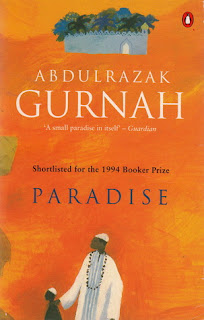Novelist Abdulrazak Gurnah wins Nobel Literature Prize
He has published ten novels and a number of short stories, and most of his works are on the theme of the refugee’s disruption
Tanzanian novelist Abdulrazak Gurnah has won the 2021 Nobel Prize in Literature. Gurnah has been selected for this award “for his uncompromising and compassionate penetration of the effects of colonialism and the fate of the refugee in the gulf between cultures and continents”, said the Swedish Academy in a statement on Thursday. The award is worth 10 million Swedish crowns, equal to around Rs 8.52 crore.
Abdulrazak Gurnah was born in 1948 on the island of Zanzibar in the Indian Ocean but arrived in England as a refugee in the end of the 1960s due to the political turbulence in his native land. It was only in 1984 he was permitted to return to Zanzibar, to see his ailing father. Gurnah has until his recent retirement been Professor of English and Postcolonial Literatures at the University of Kent in Canterbury.
Gurnah has published ten novels and a number of short stories, and most of his works are on the theme of the refugee’s disruption. He started writing at the age of 21 years, while he was still an English exile. Even though Swahili was his first language, English became his literary tool, said the award committee.
Gurnah’s writing is from his time in exile but pertains to his relationship with the place he had left, which means that memory is of vital importance for the genesis of his work. His debut novel, ‘Memory of Departure’ (1987), is about a failed uprising and keeps us on the African continent. The gifted young protagonist attempts to disengage from the social blight of the coast, hoping to be taken under the wing of a prosperous uncle in Nairobi.
Gurnah’s dedication to truth and his aversion to simplification are striking, according to the award committee. “This can make him bleak and uncompromising, at the same time as he follows the fates of individuals with great compassion and unbending commitment, it added. “His novels recoil from stereotypical descriptions and open our gaze to a culturally diversified East Africa unfamiliar to many in other parts of the world. In Gurnah’s literary universe, everything is shifting – memories, names, identities,” they said.
Gurnah often allows his carefully constructed narratives to lead up to a hard-won insight, observed the committee. “A good example is the third novel, ‘Dottie’ (1990), a portrait of a Black woman of immigrant background growing up in harsh conditions in racially charged 1950’s England, and because of her mother’s silence lacking connection with her own family history,” said the statement.
“In Gurnah’s treatment of the refugee experience, focus is on identity and self-image, apparent not least in ‘Admiring Silence’ (1996) and ‘By the Sea’ (2001). In both these first-person novels silence is presented as the refugee’s strategy to shield his identity from racism and prejudice, but also as a means of avoiding a collision between past and present, producing disappointment and disastrous self-deception,” added the committee.
Gurnah’s itinerant characters find themselves in a hiatus between cultures and continents, between a life that was and a life emerging; it is an insecure state that can never be resolved, it said further, adding, “We find a new version of this hiatus in Gurnah’s above-mentioned seventh novel, Desertion, where a tragic passion is employed to illuminate the vast cultural differences in colonized East Africa.”
Gurnah’s latest novel, the magnificent ‘Afterlives’ (2020), takes up where his earlier novel, ‘Paradise’ ends. And as in that work, the setting is the beginning of the 20th century, a time before the end of German colonization of East Africa in 1919.
In a brief conversation with the Swedish academy officials immediately after the award was announced, Gurnah expressed his surprise at receiving the award. “I was just thinking ‘I wonder who’ll get it’, I thought it was a prank, I really did,” he said.
Incidentally, Gurnah is the first black African author to win this award after Wole Soyinka, who won it in 1986. Also, he is the first African writer to win the award since the Zimbabwean Doris Lessing in 2007. He has also won Commonwealth Writers Prize (Eurasia Region, Best Book, 2006), Los Angeles Times Book Prize (Fiction, 2001) and Booker Prize for Fiction (1994)
Ever since the award was instituted in 1901, 114 Nobel Prizes in Literature have been awarded, and 4 literature prizes have been shared between two persons so far. Of the winners, 16 are women have been awarded the literature prize so far.
Rudyard Kipling is the youngest writer to win the award, and he was 41 years when he was selected for the award in 1907. On the other hand, Doris Lessing, who won the prize in 2007, is the oldest literature laureate ever, and she was 88 years old, when she got it.







Comments
Post a Comment